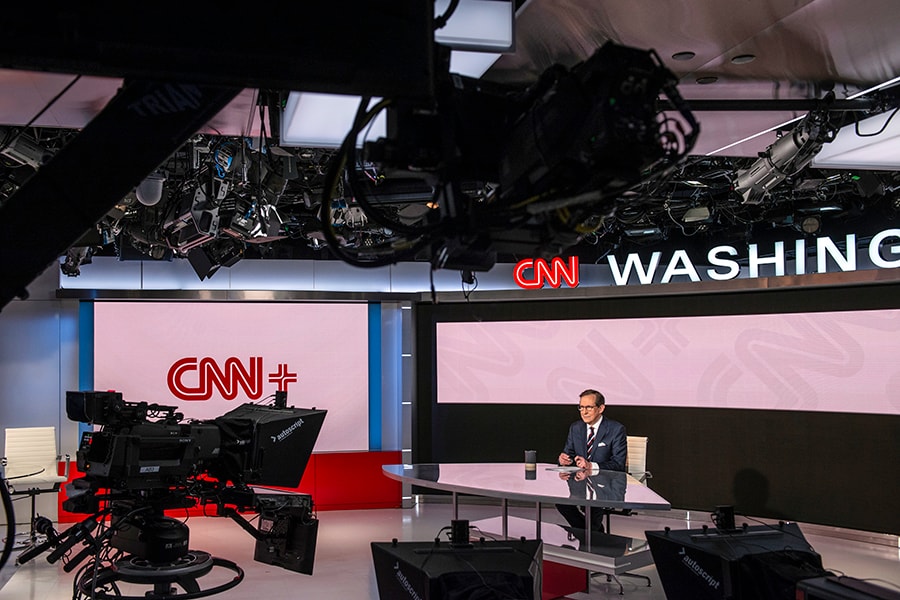
CNN+ streaming service will shut down weeks after it started
The shutdown is an ignominious end to an operation into which CNN sank tens of millions of dollars: from a nationwide marketing campaign to hundreds of newly hired employees to big contracts for name-brand
 Chris Wallace inside the CNN+ studio in Washington on Jan. 20, 2022. He was among the media stars CNN hired for the launch of the new streaming operation. (Andrew Mangum/The New York Times)
Chris Wallace inside the CNN+ studio in Washington on Jan. 20, 2022. He was among the media stars CNN hired for the launch of the new streaming operation. (Andrew Mangum/The New York Times)
NEW YORK — At sunset on the last Monday of March, CNN stars gathered for a gala on the 101st floor of a midtown Manhattan skyscraper to celebrate the launch of CNN+, the streaming service that was supposed to take the network into the digital future.
Ethan Hawke, who directed a film for CNN+, mingled with Anderson Cooper and Carl Bernstein as guests nibbled on miniature lobster rolls and gawked at the dizzying views of the New York City skyline.
It took three weeks for CNN’s new owners to bring them down to earth.
In a move that stunned the media and tech worlds, Warner Bros. Discovery said Thursday that it will abruptly shut down CNN+ on April 30. “While today’s decision is incredibly difficult, it is the right one for the long-term success of CNN,” Chris Licht, the network’s incoming president, told staff.
The shutdown is an ignominious end to an operation into which CNN sank tens of millions of dollars: from a nationwide marketing campaign to hundreds of newly hired employees to big contracts for name-brand anchors, including former “Fox News Sunday” host Chris Wallace and former NPR co-host Audie Cornish.
©2019 New York Times News Service







